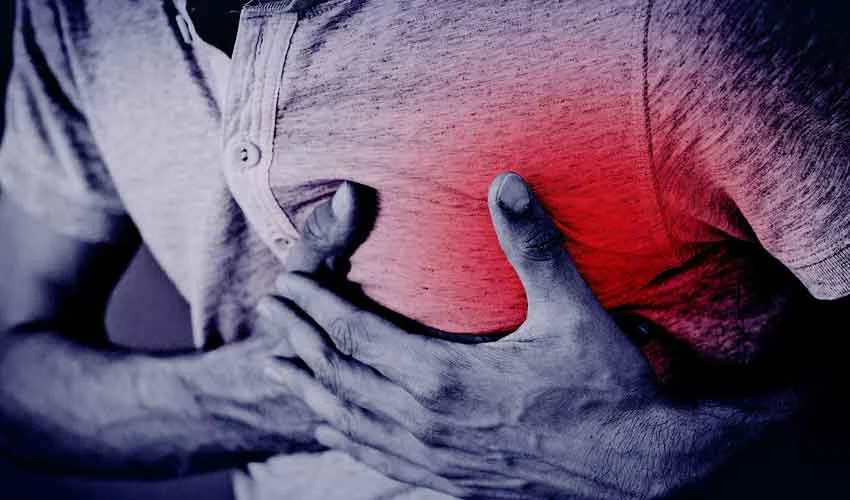Islamabad, Aug 10, 2025: Raising a red flag, leading cardiologists have voiced serious concern over the alarming rise in heart attack cases in Pakistan among individuals aged 30 to 50. Nearly half of these cases now occur in people under 49, with experts pointing to unhealthy lifestyle patterns such as irregular sleep, chronic mental strain, poor diet, and lack of physical activity as key triggers.
Speaking to a local news outlet, renowned cardiologist Dr. Abdul Hakeem highlighted a troubling trend: young, seemingly healthy individuals collapsing from sudden heart attacks without any warning signs. He linked the surge to sleep deprivation, unmanaged stress, long hours of inactivity, and excessive consumption of processed food.
According to the National Institute for Heart, about 47% of heart attack cases in the country now strike people under the age of 50—a dramatic increase compared to previous decades. The data shows that smoking, high caffeine intake, irregular sleeping schedules, and a sharp spike in stress-related disorders are fueling this rise.
Dr. Hakeem urged working professionals to prioritize preventive care and health checkups. He advised regular heart screenings after the age of 30, consistent exercise, balanced diets, and a strong focus on mental well-being to reduce risk factors.
Adding to the concern, senior cardiologist Dr. Jahangir Ali Shah described the situation as a growing public health emergency. “Years of unhealthy choices—skipping rest, depending on fast food, overusing screens, and living under constant pressure—are taking a cumulative toll,” he said. He warned that if these patterns continue, the strain on healthcare systems will be severe.
Both experts stressed the urgent need for awareness campaigns, workplace wellness programs, and community initiatives that promote preventive heart care. They emphasized that heart disease is no longer an ailment of the elderly—it is now affecting younger generations at an unprecedented rate.
Read More: PIA Direct Flights to Saudi Arabia Expand to Two New Pakistani Cities
To tackle the crisis, specialists recommend individuals in their 30s and 40s take responsibility for their health by managing stress, maintaining a heart-healthy lifestyle, staying physically active, and ensuring adequate rest. They also called on policymakers to expand access to cardiac care and intensify nationwide education programs to halt the sharp rise in heart attack cases in Pakistan.









